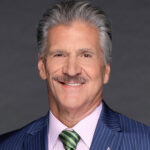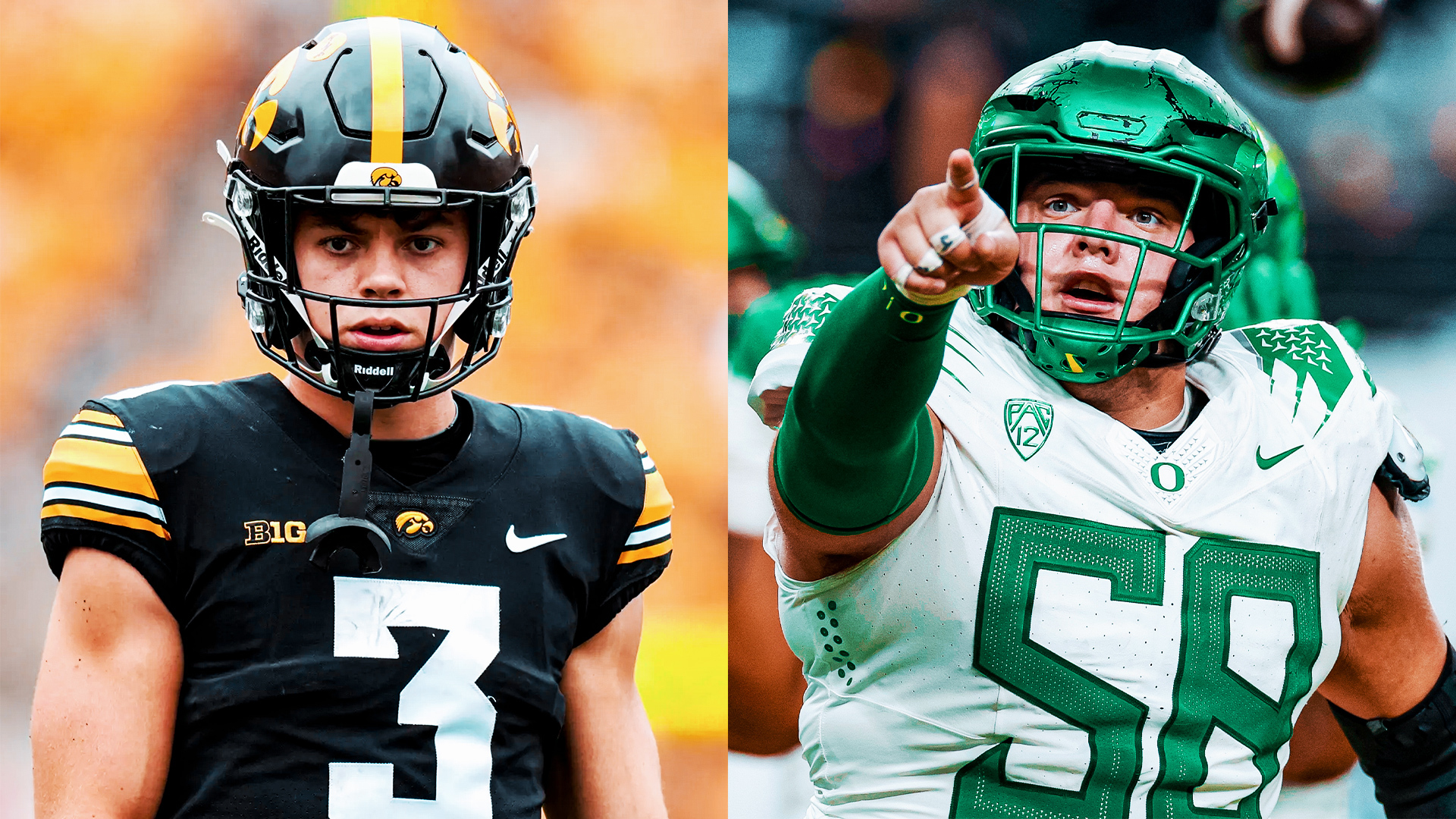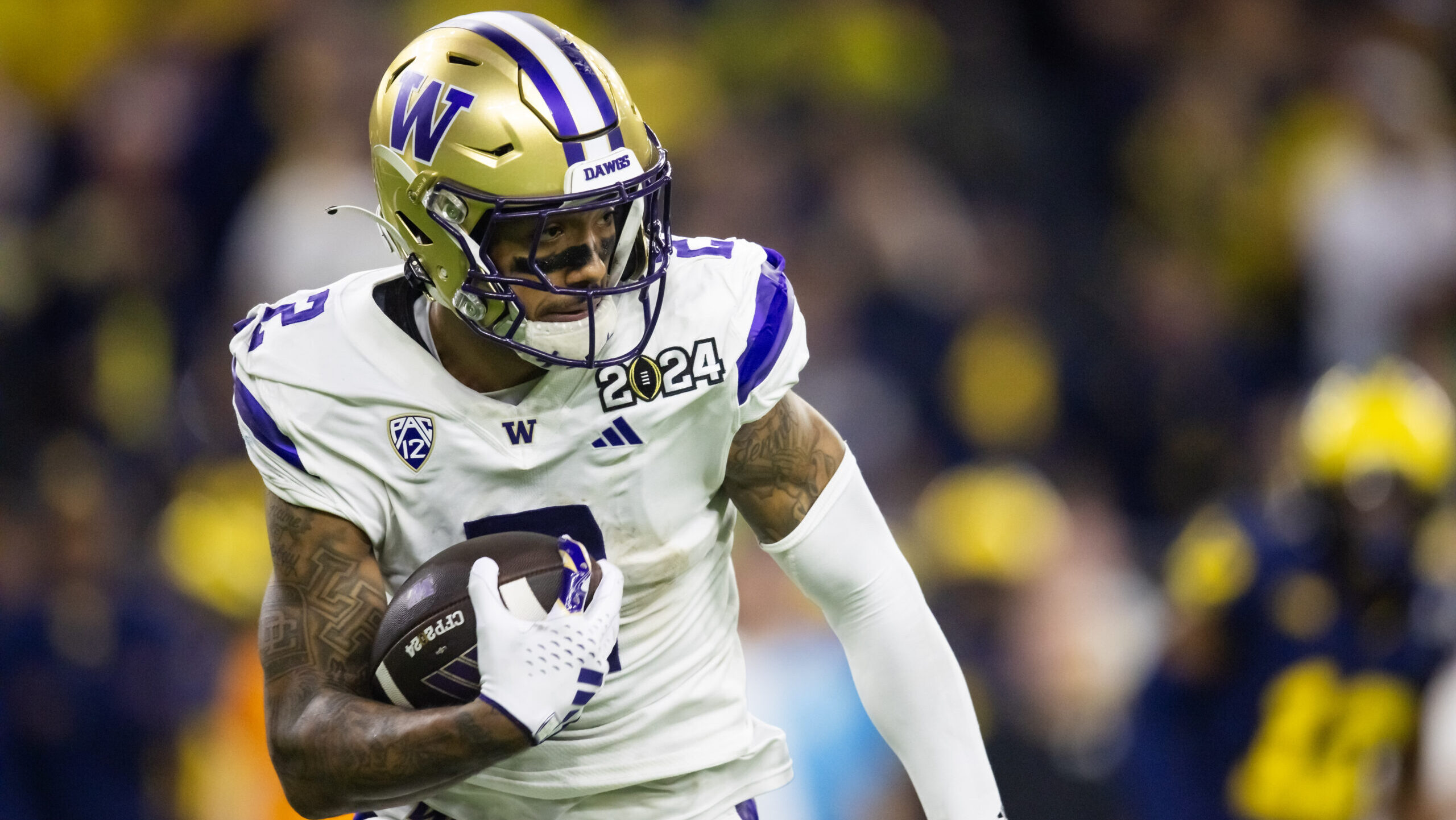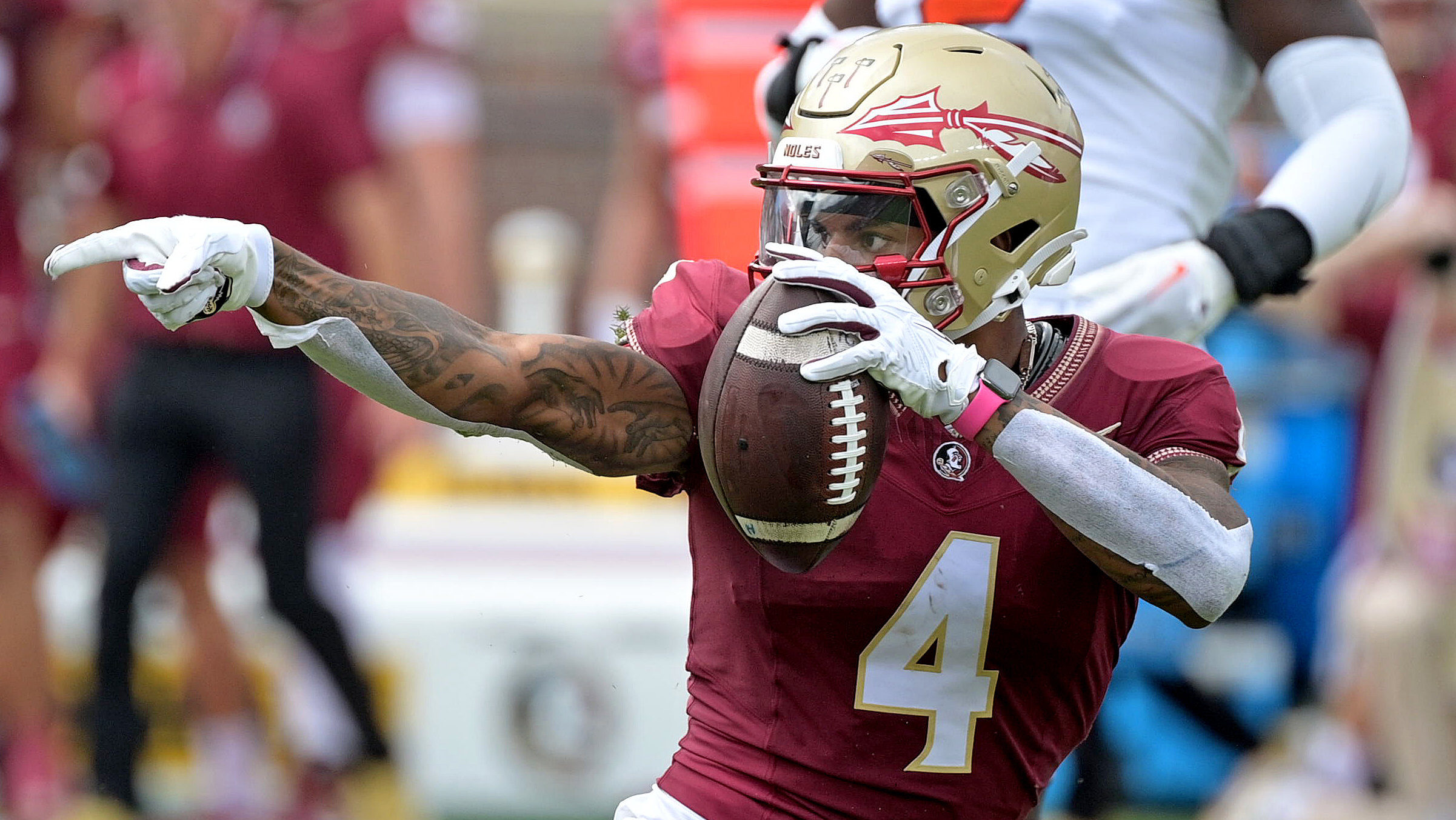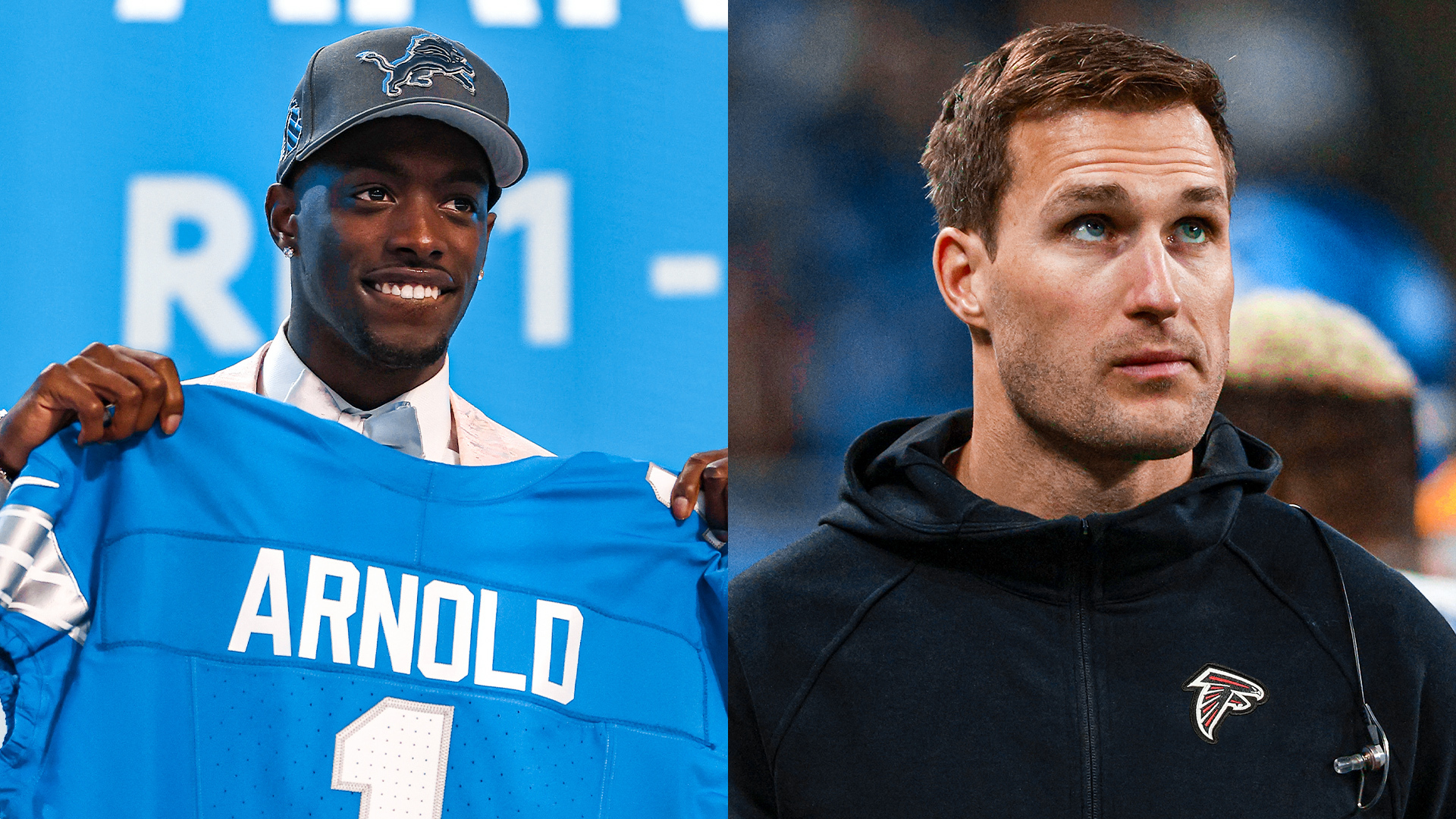Analysis
6/15/23
8 min read
Why Is There No Interest in Free-Agent RB Ezekiel Elliott?
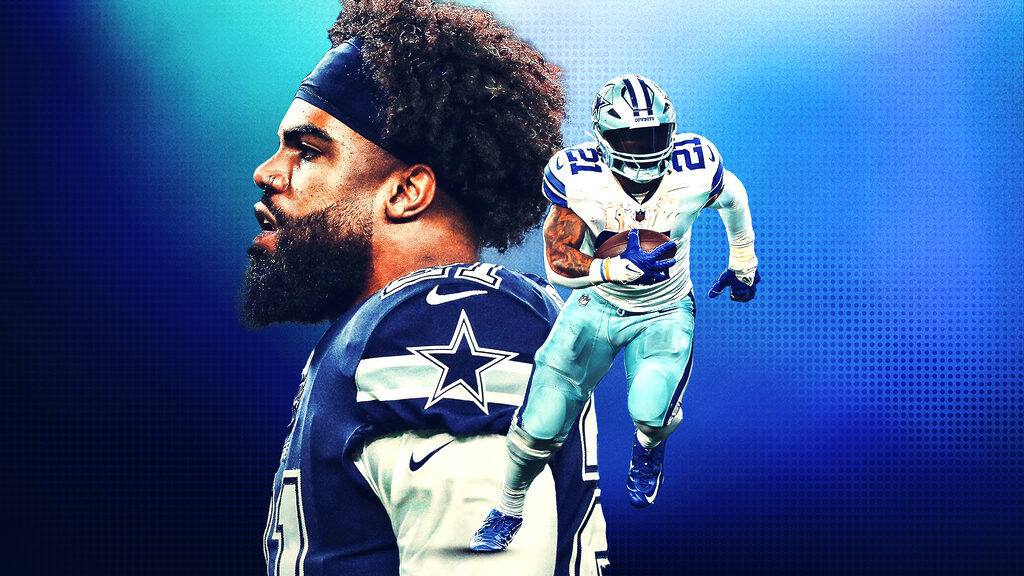
Ezekiel Elliott is at a crossroads in his career. He needs to realize what he still is and what he isn’t.
What he isn’t, after seven punishing NFL seasons and nearly 1,900 carries, is the prolific running back who won two NFL rushing titles in his first three years in the league. The nearly 3,000 touches he’s amassed during the past 10 years with the Dallas Cowboys and, before that, the Ohio State Buckeyes, have had an impact on him much the same way 200,000 miles of wear and tear affects a car.
What he isn’t any longer is a heavy-duty, carry-the-load guy like the one who averaged more than 24 touches per game his first four seasons with the Cowboys.
He hasn’t made the Pro Bowl since 2019. His rush average dropped from 4.6 yards per carry in his first four seasons to 4.0 in the last three. He averaged a career-low 3.8 yards per carry last year, which was the lowest in the NFL among the 22 running backs with 200 or more carries.
What the soon-to-be-28-year-old Elliott still is is a good running back who can help a team win games as a rotational back and effective short-yardage producer. Last year, even though he was supplanted as the Cowboys’ No. 1 back by Tony Pollard, even though he played a career-low 55 percent of the Cowboys’ offensive snaps, Elliott still was one of the league’s most effective short-yardage backs.
He converted 17 third downs of 2 yards or less. The only player with more was the Philadelphia Eagles’ quarterback sneak maestro, Jalen Hurts, who had 18. Elliott also tied for fifth in rushing touchdowns with 12, behind only Jamaal Williams (17), Derrick Henry, Austin Ekeler and Hurts (all with 13).
So this is hardly a horse who needs to be put out to pasture — just one who isn’t going to see the winner’s circle as often.
“Zeke still is a really good football player,’’ NFL Network analyst Brian Baldinger said. “He can help out a lot of teams. There aren’t a lot of 230-pound running backs in this league that, if you need a yard for a touchdown or first down, are going to get it for you almost every time.
“He’s still as good a pass-blocker and pass-protector as there is. He’s an excellent receiver. And he loves the game. He’s a good teammate. A good practice player. It’s just a question of, OK, he does have a few miles on him now. He’s not quite as explosive as he used to be.’’
Released by the Cowboys in mid-March, four years into the six-year, $90 million deal he signed in 2019 after winning his second rushing title, Elliott still is unsigned. It’s not that there isn’t any interest in him. There is. But not anywhere close to the money he was making in Dallas.
“He has to have a come-to-Jesus moment right now like a lot of players need to have as they get older,’’ Baldinger said. “Saquon (Barkley) has to realize it, too. I know what Christian McCaffrey is making and what Alvin Kamara is making. But they were at the right place at the right time.
“Teams aren’t building their football fortunes around the running game right now. Nobody is believing the metric that you can do that. You can run the ball, and you can play great defense and probably make the playoffs with that formula. But you’re not going to beat Kansas City with that style.’’
Elliott is one of several notable running backs still on the free agent market. Others include Dalvin Cook, released by the Vikings last week after rushing for 1,173 yards last season, Leonard Fournette, Kareem Hunt, J.D. McKissic and Mark Ingram.
The NFL is a passing league, and teams aren’t investing a lot of money into the running back position anymore. Just one team – the Cowboys – used more than eight percent of their 2022 salary cap allotment on running backs (8.98 percent). The Super Bowl-champion Chiefs used just 1.57 percent of their cap space on running backs. Their leading rusher in the playoffs was a seventh-round rookie, Isiah Pacheco.
The Eagles, who lost to the Chiefs in the Super Bowl, used just 2.34 percent of their cap on running backs. After the season, they let their leading rusher, Miles Sanders, walk when he became a free agent in favor of less expensive options.
“It shocks you to see Zeke still unsigned and all of these other guys still unsigned,’’ said former NFL running back Robert Smith, an analyst for The 33rd Team. “But then you think about what’s going on with the position today [and you understand]. You hate to see the running back position devalued. But the market is what it is.
“Teams aren’t using backs the way the Cowboys used Zeke early in his career. They’re rotating people. It’s just the nature of the beast at running back right now and the way offenses have evolved.’’
Sanders just turned 26. He rushed for a career-high 1,269 yards last season with the Eagles and ended up signing a modest, four-year, $24 million deal with the Carolina Panthers. His former Eagles teammate, defensive tackle Javon Hargrave, signed a $21 million-a-year deal with the San Francisco 49ers. That tells you all you need to know about the current value of running backs compared with other positions.
“If there’s an abundance of available talent at a position like there seemingly is at running back right now, why would you overpay for somebody?’’ former NFL executive Joe Banner said last month.
“You can’t say that about many other positions. If you have a top-tier receiver and you let him go, the chances of replacing him with somebody of comparable quality are tiny. If you have a defensive end who is a great pass-rusher and you let him go, the chances of replacing him with somebody just as good are really small. But if you let a running back go, the chances of replacing him with somebody just as good are very, very high.’’
Which brings us back to Elliott. With a few exceptions, the vast majority of the running backs on the free agent market this offseason signed one-year deals. That likely will be Elliott’s fate, as well.
“Between the focus of offenses [away from the run game] and the damage that running backs accumulate, they need to be realistic,’’ Smith said. “They need to understand their [changing] role and understand that the contract structure isn’t what they would like it to be.
“Bill Polian has talked about the cliff. For a lot of positions, it’s 30. But it’s even younger for running backs. He said the first six years are the most productive you’re going to get from a running back. After that, you have to be very careful. That’s why, when Zeke does sign, I’d be very surprised if it’s much more than a one-year deal with incentives.’’
Smith played eight seasons for the Minnesota Vikings. He retired at 28 after rushing for 1,521 yards in 2000.
Don’t discount the possibility that Elliott could end up back in Dallas, playing a supporting role behind Pollard. Cowboys owner Jerry Jones said last week that he “never shuts the door’’ on bringing a player back. “It’s all wide open,’’ he said.
Both Baldinger and Smith think returning to the Cowboys would be the best career move Elliott could make.
“It’s his best landing spot,’’ Baldinger said. “Jerry wants him. He knows what kind of teammate he is. He knows how valuable he can be in the backfield with Pollard. Mike McCarthy says he wants to run the ball effectively this year. Whether it’s Zeke or someone else, that’s going to be a two-back situation this season. Pollard never has carried the ball 200 times in a season.
“It’s just a matter of when he walks into the Star [the Cowboys’ training facility in Frisco, Texas], can he walk in as a $4 million player instead of a $10 million or $12 million player? Can he do that? Because I believe it’s the best place for him.
“It’s the old, the-grass-isn’t-always-greener-on-the-other-side thing. He’s beloved in Dallas. He knows the offense. He knows the system. If he gets five carries in a game, but they win the game, I don’t think it’s going to shake him at all. I think he’s at that stage in his career where it’s whatever he can do to help the team. I think he could still have tremendous value to them as a short-yardage weapon and a guy who could protect Dak [Prescott] against a defense that likes to blitz.’’
Said Smith: “Dallas is the place he’s comfortable. Once he understands that he’s not going to get the kind of money he wants somewhere else, I think it would be foolish to pass up going back there if it’s an option.’’
Paul Domowitch covered the Eagles and the NFL for the Philadelphia Daily News and Philadelphia Inquirer for four decades. You can follow him on Twitter at @pdomo.

